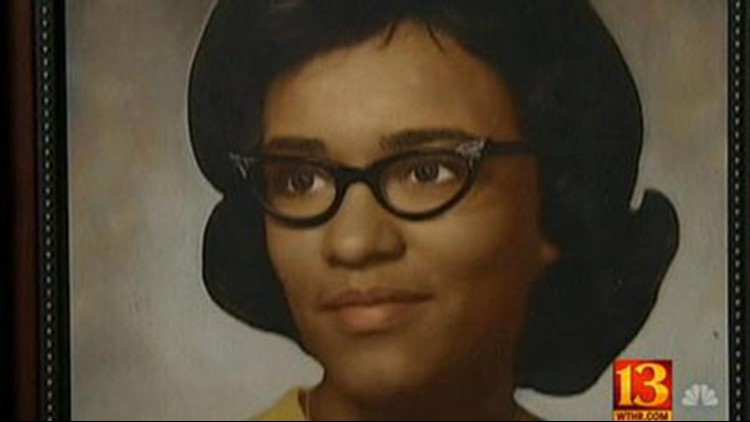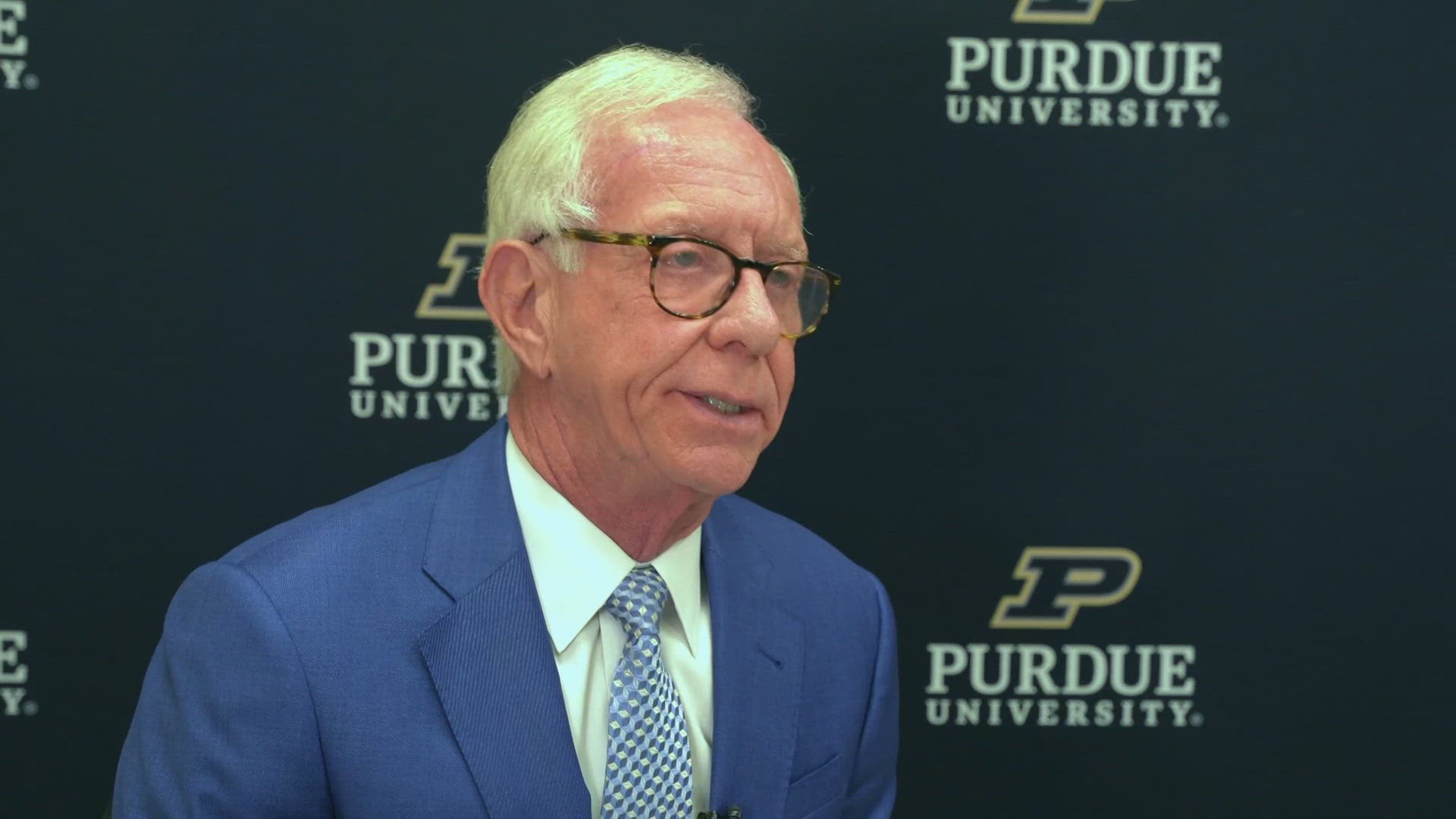A haunting murder mystery: A 21-year old black woman was brutally killed on the streets of an Indiana town with a reputation for intolerance in the late 1960s.
No one knew what happened to her until Eyewitness News reported on the case, prompting an unlikely witness to speak up.
Now for the first time, Eyewitness News takes you inside the devastating secret and the path to the accused killer, in a new book coming out Friday May 18th.
Sandra Chapman's book includes interviews in the daughter's own words about turning in her own father.
"I told him, I said, "I remember you hurting that lady. I remember being there seeing you do that, why did you have me with you?"
For the first time, Shirley McQueen recounts a conversation she had with an accused killer. She is the woman who helped solve one of Indiana's most notorious murder mysteries.
"I remember watching her fall. And I talked about him giving me that $7 and told me to keep a secret," she said in excerpts of a taped interview McQueen did for a new book coming out on May 18th.
Ten years ago this month, McQueen and her $7 secret led to the arrest of her own father Kenneth Richmond, for the 1968 racial killing of Carol Jenkins in Martinsville, Indiana.
McQueen was just seven years old when she witnessed the attack from the backseat of her father's car as he passed through town.
For more than three decades she lived with the nightmare before telling investigators what she knew and revealing to Carol's family those final hate-filled moments.
Paul Davis sat down to talk about the release of the book - and Shirley - several weeks ago.
"I told her, I said, 'you were seven years old. You were not only terrified to see the girl falling, but you were traumatized,'" he said, recalling one of the few conversations he had with McQueen, who apologized for not coming forward sooner.
Now the story behind the state and national headlines comes to light, in the new book written by the reporter McQueen called with a chilling message.
"If the girl was wearing a yellow scarf and was killed with a screwdriver, my father could be the killer," McQueen had said.
Up until that moment, no one ever knew Carol Jenkins was wearing a yellow scarf.
"I didn't know she had one. And Shirley was the only one that ever knew it because it was never in the papers or anything about her having a yellow scarf," said Davis.
That detail, along with an anonymous letter written by Shirley's sister-in-law following investigative reports by Sandra Chapman into police missteps in the case, led cold case investigators to McQueen.
"I told him everything I remembered and about her scarf, her yellow scarf and everything," McQueen said as she recalled a visit from investigators in 2001.
We are not showing Shirley McQueen's face because she wants to retain some privacy in wake of the turmoil she still lives with, even now ten years after turning her father in.
Kenneth Richmond died in custody in September 2002, before he went to trial and without naming his accomplice. But Chapman does know the name of a person of interest, whose identity was included in the tip from Shirley's sister-in-law.
Indiana State Police say Kenneth Richmond himself admitted to the crime. Richmond's Attorney Steve Litz denies that claim and there's no way to prove it because police don't have that confession on tape.
State Police spokesman Dave Bursten told Eyewitness News back in 2007 that if Richmond had lived, the confession would have been brought in trial.
"Shortly before Mr. Richmond's death, he acknowledged his involvement in the death of Carol Jenkins," said Bursten.
"The detectives told us that he confessed. He didn't speak but he shook his head yes. Said this guard asked him if he did it? And he shook his head yes. Yeah...I believe it," added Davis, who spent 30 years of his life trying to track down his daughter's killer.
He finds it ironic that the answer to the murder mystery was locked away in the memory of someone else's young daughter.
Davis credits Chapman with helping to break the case.
"And for you to get in there and dig like you done, and you developed some kind of bond with Shirley for her to even want to talk to you the way she did about it and that made me feel good," Davis said, acknowledging Chapman's work.
Like Shirley, Carol's family is still healing.
"God worked with me for all of those years because I was a pretty angry man at first," Davis admitted.
Now, he's forgiving, but never able to forget the cost of intolerance - or the town trying to move beyond its past..
"I feel like she's part of the Civil Rights movement, and she had to give her life to make some people realize that it's not about color. It's about what a person has in their heart," Davis concluded.
The Girl in the Yellow Scarf has been an emotional and historic journey for all involved.
It began when Shirley McQueen asked Chapman to write her story back in 2003, although it's never been an easy subject McQueen to speak about.
McQueen wants little to do with publicity, but shares her thoughts and writings about that night in Martinsville and her life-time connection to Carol Jenkins, the journey to reveal the truth and life with an abusive father.
Carol's parents support "The Girl in the Yellow Scarf"and hope Indiana will become a better place because of their daughter's legacy.
That hope is also shared by a group of leading citizens from Martinsville, now working over time to try to change the image of their town.
"The Girl in the Yellow Scarf"
Book Signing: Friday May 18th from 6 to 9pm
Barnes and Noble at Clearwater Crossing
Copies can be ordered from Amazon.com $15.00 plus shipping
Or mail a check to: Prince Media Group, LLC
P.O. Box 78065
Indianapolis, IN 46278-9998
$15.00 plus shipping



